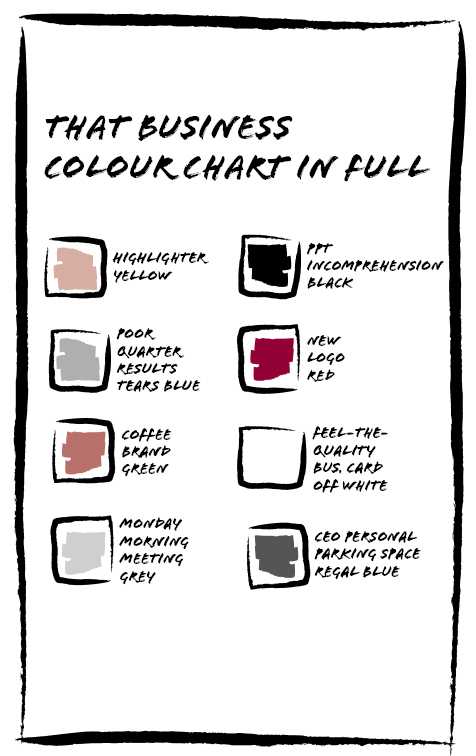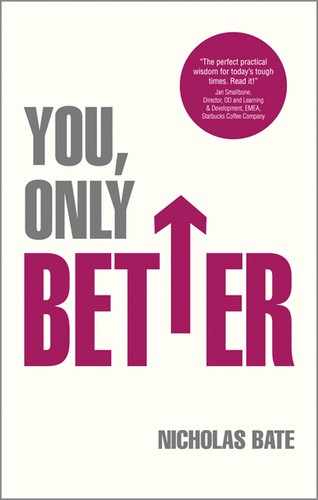Section 1
Do What You Are Best At
How do you create the Perfect Life? In many ways of course: that's what this book is about. But at the heart of it all is to do what you are best at. And although on some days and in some moods it seems a no-brainer, it's worth just thinking about why …



But hang on a minute, you say. I'm best at five-a-side football, she's awesome at accounts and book-keeping and he just loves chatting to people and I think he could sell anything! So, what are we ‘best at’? Football, accounts and selling respectively? I mean, maybe the latter two will work but I'm never going to get a job as a professional footballer. Never. And don't you dare give me any of that ‘positive thinking’ stuff. You see, I just don't get it. Not everybody can do what they are best at. There are already too many coffee shops and for that matter, too many management consultants. I could go on. So?
You make a good point and I'm glad you made it now because doing what you are ‘best at’ is not always obvious. No not at all. And I'm with you: it's certainly not as simplistic as ‘positive thinking’ yourself into a job as a TV chef simply because you make a mean lasagne. Surprisingly it's not necessarily as simple as doing what you are good at, doing what you can do easily, or even doing what people admire. So let's step back a bit and get some clarity.
What do we really, really mean by ‘best at’?
‘Best at’ is a subtle mix of three things:
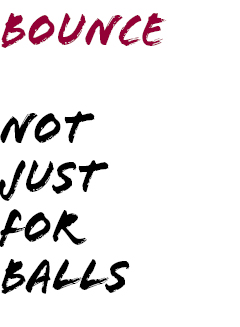
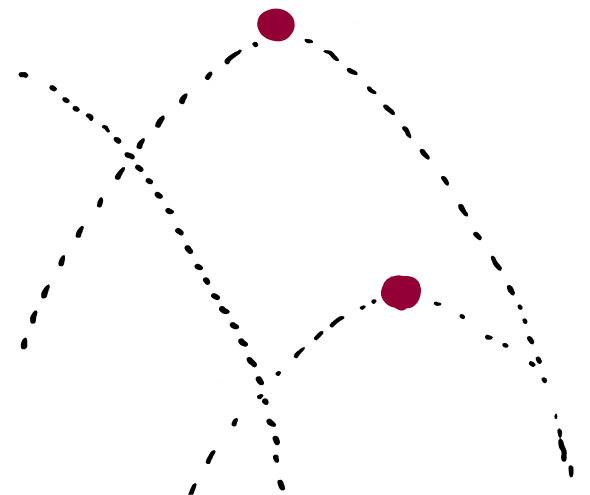
Alright then, I sort of get it. But how do I find out what my personal best marketable skill is if it's not as simple as ‘what I enjoy’ or ‘what I am good at’? How does anyone?
It needs a bit of work and a bit of reflection and digging. Not much, but a little. And of course it is really worth it. There are three simple steps. Why don't we go through it generally and then explore your situation and that of Emille just as examples. Our three simple steps are (1) wake up, the one where we stop sleep-walking – hoping – and start to think about this important topic, (2) get real, where we apply some day-to-day and commercial common sense to what might be truly viable and (3) take action, the one where we stop talking and start doing.

Isn't it simply a bit of luxurious thinking in a challenging world?
We live and work in challenging times. Isn't a bit luxurious to be thinking like this?
Perhaps, but how about if we realise it is actually the ONLY way to a sustainable career, the only way to keep our sanity. The only real way to build up our finances for later life? Things are not going to change. This is the new world of work: increasing austerity, global competitors and more automation and less need for people.
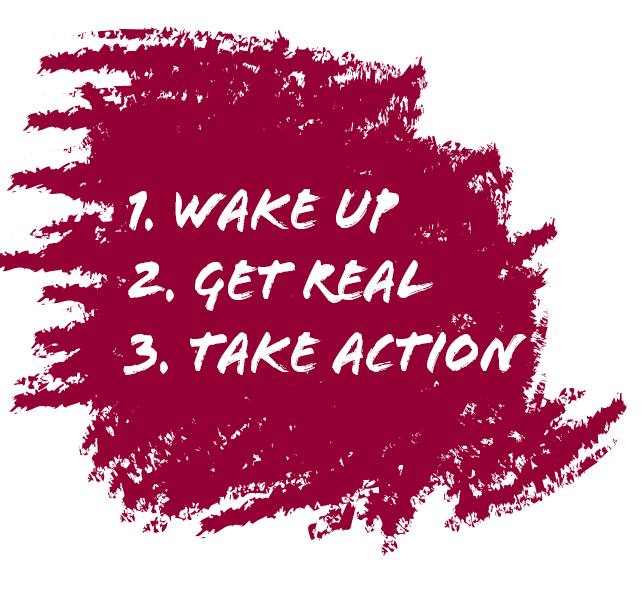
Tim
So, Tim. Tim currently works in IT. Has done since he left university. He's actually pretty good at it but hates the job. His real passion, as I think we have discovered, is five-a-side football. And playing that a couple of times a week plus the pub afterwards really gets him through the week. He knows he's unlikely to get promotion as he is always seen as a bit of a management challenge. To be honest he's pretty fed up and that is why he is constantly fantasising about creating a job out of his football.
The first thing for Tim on his quest to do what he loves, to do what he's best at, is to get the football stuff out of his head for a while. He's pretty well lived and breathed ft since he was a child. It got him through school, got him through college and makes his working days palatable. He's also good. But would he really want to do it for the rest of his days? Not really. Nah, it was just that it was all he knew really. And being honest he'd never tried that hard at anything else. The lads liked a good footballer as did plenty of the girls. But maybe now at 27 he needed to start thinking a little differently. So:

And it was more than that, he liked being good at something and people needing his help and he liked helping them. Down it went:

Funnily enough the debilitators were not flooding to mind as he might have thought they would have done; he was really enjoying this clarity. Anyway time to get to work.
For Tim, that became his morning ritual and by Friday he had this:

This was good. This was going well. And the breakthrough had been on the debilitating side: not being appreciated.

Emille
Emille is currently working in finance for a chain of cinemas in Paris. She too hates the job but loves numbers. A perfect spreadsheet is ‘her thing’. She is brilliant at identifying the strategic and pertinent points from masses of data and tries to advise her management team appropriately. Unfortunately, they seem to be constantly making decisions by looking at apparently ‘obvious’ points such as high cost, but as Emille has tried to point out, these are just symptoms of a deeper problem … Unfortunately she is aware that she is often ignored as ‘just a girl from accounts’ and what would she know about strategy?! She has thought about doing a ‘distance-learning’ MBA but they would not fund it and she also doesn't really need it: it would just look good on her CV.
Again, the first stage for Emille is to get all the old baggage and history out of her head. Sure she loves numbers and sure she finds a lot of the ‘people stuff’ a pain. But, on the other hand, she does enjoy convincing people of a strategic direction using the power of evidence. She also needs to let go of a lot of the ‘everybody is against me’ stuff. They‘re not: they simply haven't been sensitive to the fact that they have a real asset in their midst. Only Emille can change that.



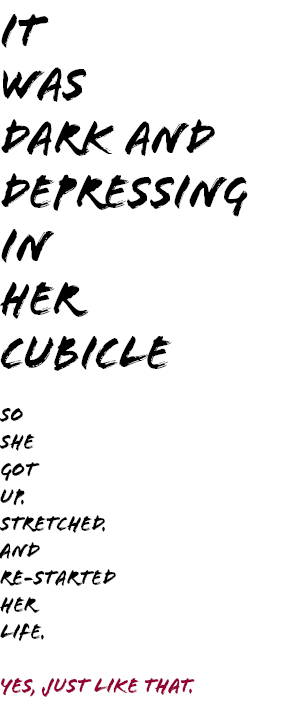
As you start to implement your Wake Up; Get Real; Take Action plan here are some straightforward tactics which will help you:
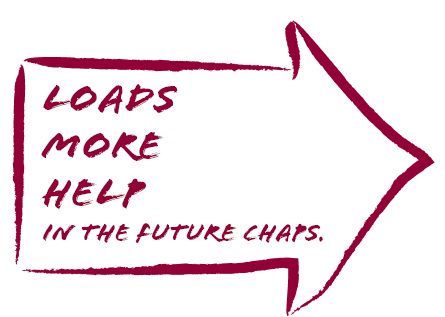
A Few Questions If I May?
1. Somehow my case doesn't seem as ‘simple’ as the ones you have illustrated? I've tried the exercise but it hasn't really taken me very much further with my thinking.
Give it more time. Everybody gets there. Everybody else's case seems simpler. But do remember we may have been thinking in different ways for a decade or more. This exercise can take a bit of time to seep in. But it will eventually. And by all means continue reading this book, e.g. the chapters on creativity or making decisions which come later will undoubtedly ‘spark’ the breakthrough if it hasn't come already.
2. Nowhere here do you talk about the risks of chasing or following your dream. Some jobs may be dull but at least they pay the rent.
All jobs have risks, very few jobs are 100% secure any more. Your job, your career is increasingly what you make of it. And the best way to get ‘security’ is to do that about which you are passionate. No job is ever sustainable ‘just because of the money’. So are you actually taking a risk by wishing to do what you are best at, or as you express it ‘chasing your dream’? No, definitely not. There is much more risk in not finding that place in life.
3. Surely all jobs have their less attractive aspects. But that's life: we can't run away from everything we don't like.
There are a few things here. All jobs are riddled with the efforts of those who are less than professional, e.g. the manager who runs long, boring, unstructured meetings. Agreed – that's not something to run away from: that's something to address. But there are some people who just don't want to spend their days in meetings however brilliantly run they might be. That's what we're talking about here. And with effort and consideration they do have that choice. And with a ‘Rock Star Good’ mentality the few meetings they do need to run or attend can become tolerable, even enjoyable.
